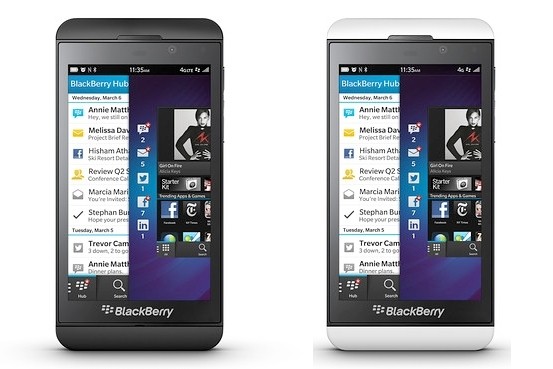June 1st marked the end of the first full quarter since BlackBerry 10 and the Z10 became available. Naturally, both analysts and investors were anticipating to see some signs of a turnaround, but instead it was a surprise quarterly loss and lower-than-projected sales. In all, the Canadian firm sold 2.7 million BB10 devices during the quarter, saw its subscriber base fall by 4 million, and reported an $84 million loss on revenue of $3.1 billion.
Revenue is actually up 9 percent from the same period the year ago, but the company still missed analysts' average estimates of $0.07 earnings per share on revenue of $3.4 billion.
The number of BlackBerry 10 devices sold represents 40 percent of the company's total 6.8 million shipments for the quarter, which means its older BlackBerry 7 devices still outsold its newer smartphone lineup. To put that number into perspective, Apple sold more than 37 million iPhones last quarter.

BlackBerry CEO Thorsten Heins reminded people during the quarterly earnings call that they're only five months in to the launch of BB10, and changing the company's fortunes will require a lot of work and patience. Investors are not known for the latter though and have already sent the company's share value down ~25% this morning.
Heins also said he anticipates an operating loss in the following quarter given the "highly competitive" smartphone market. Aside from struggling to compete on the high-end, the company faces price pressure in Latin America and South Asia, where Asian manufacturers are flooding the market with low-cost Android devices.
The company also put the final nail in the coffin for its long-struggling PlayBook tablet by confirming it would not be updated to the new BlackBerry 10 platform, focusing its efforts on core devices instead.
The news follow a brief swing back to profit last quarter when the company made $94 million on revenue of $2.7 billion. BlackBerry's long-term strategy is still a mystery but recent moves taking Secure Work Space and BBM to rival iOS and Android platforms suggests it could eventually become a software and services company. For now, BlackBerry will remain "an end-to-end solution, including the device," according to Heins.